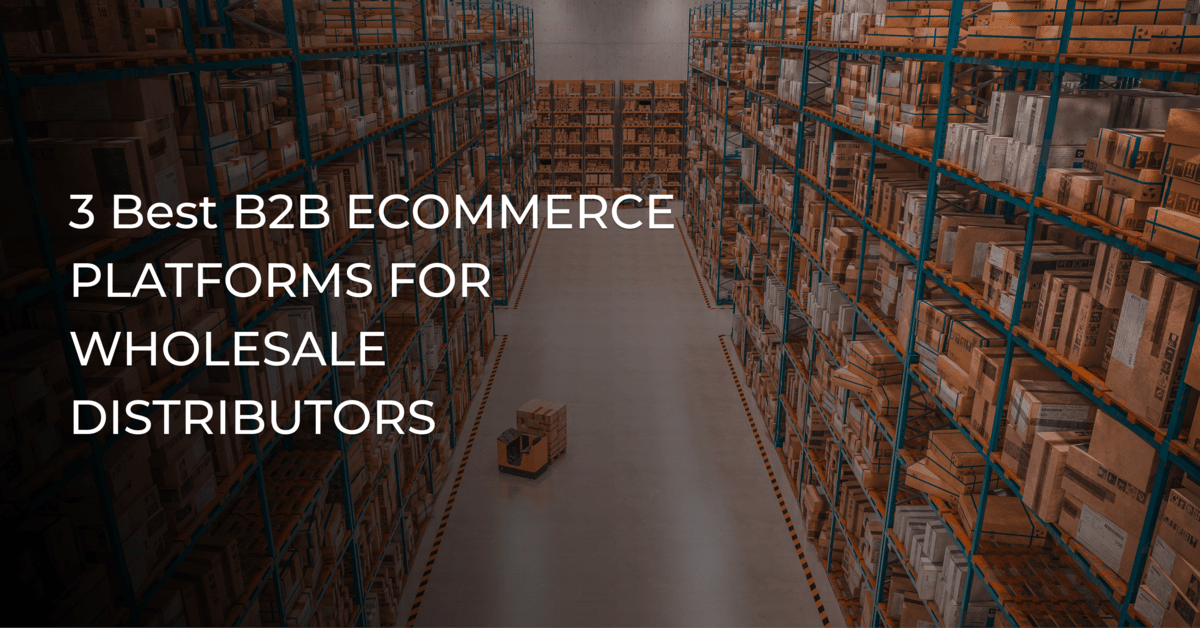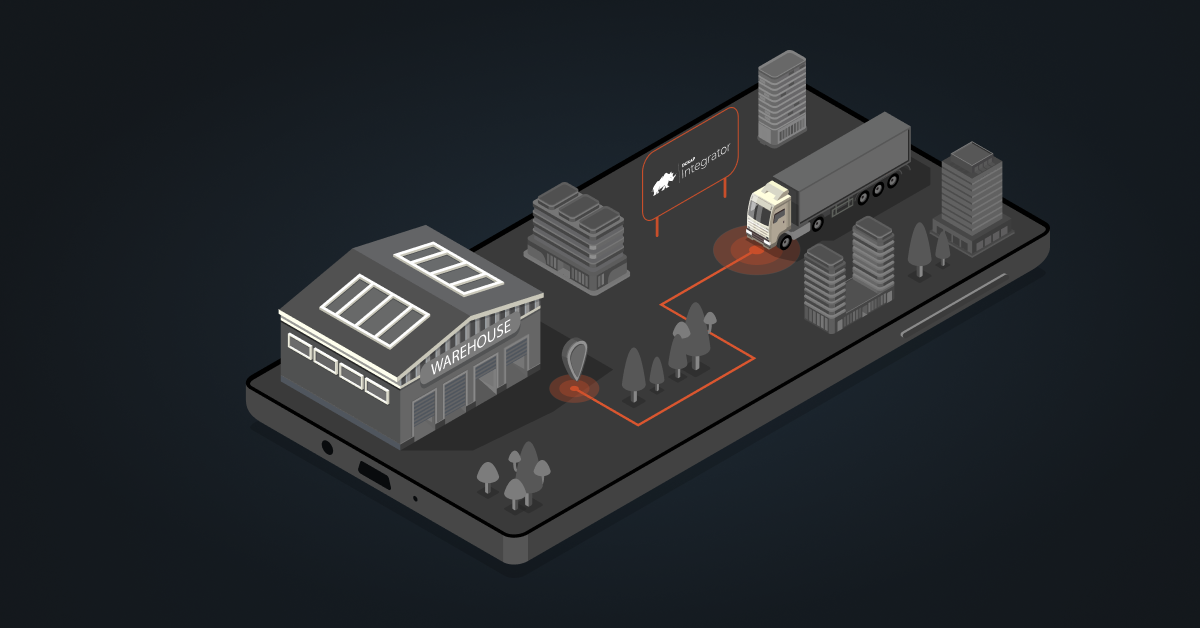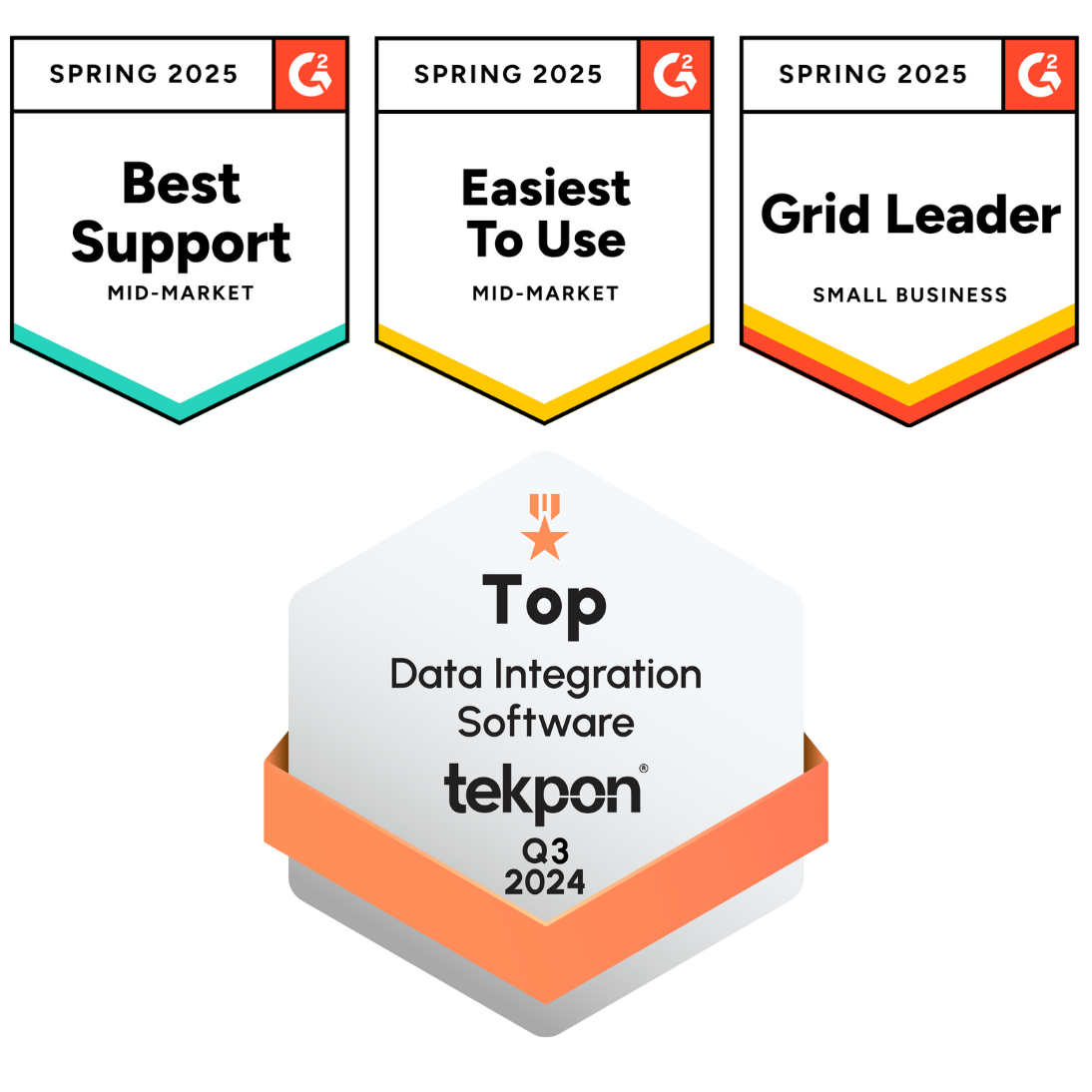Did you notice? There is a global rush among distributors to shift from multi-channel eCommerce to omnichannel. The growth of the D2C market & Amazon’s bold move to enter the B2B market has captured the attention of distributors. So, hurry up! It’s time to aggressively implement agile omnichannel distribution through ERP integration to stay one step ahead in the constantly evolving eCommerce market.
In an omnichannel business strategy, managing the additional sales channel can put you under a lot of herculean tasks if you lack a proper integration strategy. To survive in the digitized and connected business ecosystem, it is necessary to break through with the right message, at the right time.
However, it can be difficult to consolidate your additional sales channels without robust technology. If you are still working on the old legacy system, you might face difficulty in:
- Achieving visibility of data across channels and stakeholders
- Taking real-time operational (inventory management, etc.) and commercial decisions (delivery tracking, pricing, etc.)
- Managing stakeholders, such as vendors, 3PLs, transportation firms, eCommerce platforms, ERP systems, and so on.
Read more to know the benefits of omnichannel eCommerce and how DCKAP Integrator, ERP integration solution, accelerates your sales growth.
Read More: ERP eCommerce Integration Explained
Experience Omnichannel eCommerce Through ERP Integration: Top Benefits
1. Reduce Total Inventory Cost Through Real-Time Management
Did you ever struggle with keeping track and controlling the quantity of products, overstocking, and updating prices? Well, then you might be knowing where your expenses are piling. Overhead expense is one of the challenges most distributors face while scaling up.
Yes, you would be working on neoteric technology and software solutions, and you might have implemented the best-in-use ERP software. However, your team may lack in performance if you cannot automate repetitive tasks that consume time, human labor, and dollars.
A middleware solution is necessary to keep your additional sales channels and technologies connected with eCommerce. An ERP integration platform brings up-to-date inventory data that helps your employees keep track of operations and the stock level in the warehouse, thus helping to minimize overselling and overstocking.
2. Bring Price Agility Through Real-Time Updates
Updating different sales channels with price changes can be difficult without adequate omnichannel integration. ERP integration middleware solution will automatically apply price adjustments to all needed channels. Even if you have different pricing for the same item across your multiple channels on purpose, you can regulate them all from a centralized database.
3. Increase Productivity & Amplify Time To Market
Spending less time on mundane tasks can bring a lot of changes to your distribution activity. ERP integrated solutions facilitate a centralized database that connects all your additional sales channels and automates most of the tasks like sales orders, invoices, purchase order tracking and shipping, etc.
Bringing omnichannel transparency through ERP integrated solutions ensures you create more value-driven operations every day. Internal productivity is what helps you provide customer satisfaction. If your team is caught up with tedious and time-consuming manual tasks, it might ruin the agility and creativity.
Apart from the additional sales channel, an omnichannel strategy is also critical to synchronize internal communications. An integrated CRM system within your ERP software keeps track of information about your external and internal customers.
Internal customers( your employees) will benefit from this since you will be able to customize and target communications to specific persons and departments based on their preferences and work roles.
4. Boost Customer Retention Through Responsiveness Features
Installing an ERP system and integrating it into your company’s workflow can bring a lot of benefits. All client information, transaction history, communications, and more can be kept in one place using these solutions. Using middleware to integrate your ERP software with your business operations offers your team access to a common database of all potential and current clients.
Since ERP integration allows greater contextualization of information, data is swiftly becoming the backbone of the future. The future of commerce is all about contextual eCommerce. Customers demand greater customization and on-time delivery. In a nutshell, streamlining unhindered data flow through ERP integration should be the priority of every distributor to rise ahead in the digital race.
5. Gain Real-Time Reports On Transaction & Demand
eCommerce retailers are chasing better speed, dependability, flexibility, size, and simplicity in all aspects of their services today. It is now feasible to obtain real-time data and insights with the support of omnichannel ERP integration.
Integration through ERP synchronizes and automates data facilitating up-to-date reports, making it easier to assess performance from a single dashboard. Through automation, you can easily detect areas that have the potential to impact your profit margins with automatic profit tracking and reporting.
How DCKAP Integrator Help You Boost Your OmniChannel eCommerce Experience?
1. Manages All the Inventory from One Place
DCKAP Integrator untangles your siloed workflow by bringing visibility into every sales channel through strategic integration with ERP such as ERP WMS integration. Moreover, DCKAP Integrator assists you in managing data flow between your apps in response to changing business needs.
The value of having all of your data in one place can’t be overstated. There is no need to keep a secondary database or excel sheet if all inventory data is recorded in a single database that has been completely integrated into the ERP system.
All your transaction and user journeys uploaded to the inventory management system will be also posted to the accounting system and additional channels, thus enhancing omnichannel performance.
2. Efficiently Connects Multiple Warehouses
One of the objectives of integrating your ERP and Warehouse Management systems is to to help your sales, customer service operations, and finance departments make better & strategic decisions.
Here are some of the top benefits of integrating your Warehouse Management System and ERP with DCKAP Integrator:
- Concerns regarding data accuracy vanish when your ERP and WMS solutions are integrated. The integration aids in the creation of timely receipts, as well as the enhancement of picking, replenishment, order management, vendor returns, and physical and cycle count reporting.
- Your warehouse managers can measure staff productivity daily when your warehouse management software and ERP system are integrated. When an employee completes a job, managers may be notified in real-time, allowing them to plan and make decisions faster. This real-time communication helps you deliver solutions efficiently.
- Integration establishes a seamless connection between the two systems, ensuring that no one in your organization is working in a siloed environment. This information exchange guarantees that your sales force does not make promises that you cannot deliver.
3. Smart Purchase Order Management
Integrating your vendor management system with ERP using the DCKAP Integrator helps you reduce costs and improve vendor relationships by automating and centrally managing your global purchasing processes. It helps to :
- Automatically generate purchase orders based on stock levels and inventory replenishment algorithms.
- Automatically create accounts payable vouchers from receipts. Track receipts, and consolidate them from multiple purchase orders into a single receipt.
- Create predefined approval rules for various order types, vendors, order amounts, and other order-specific information.
- Streamline cross-company buy-sell transactions and create the sales invoice without any hassles.
4. Fast Flow Of Information Through Point Of Sale (POS)
DCKAP Integrator integrates your ERP system with POS helping you streamline operational workflows and increase sales efficiency. Businesses get improved control of operations across numerous locations by integrating real-time sales transactions and customer data with inventory, buying, accounting, and workforce management data.
Here are some of the stellar benefits of integrating your POS and ERP:
- Eliminates the potential for human error and workflow delays from manual data updates.
- Businesses can see every aspect of their operations, including sales, stock, inventory levels, and budgets. This implies that managers may make critical decisions depending on the real-time updated information they get.
- Helps in improving & forecasting seasonal inventory orders based on previous data. This ensures that a sufficient supply of high-demand commodities is always accessible during critical sales times.
- Businesses may gain a greater understanding of their customers’ purchasing behaviors, which can lead to better experiences and, eventually, more revenue.
5. Enhance Barcode Management & Improve Inventory Visibility
You can gain even greater efficiencies by directly integrating barcode technology with ERP solutions using DCKAP Integrator. Barcode systems give a real-time or near-real-time picture of assets, shipments, work-in-process, inventories, and other objects, ensuring that the ERP system has the most up-to-date information accessible to provide management with clear business insight.
Integration platform facilitates hassle-free bidirectional data flow by connecting your barcode system and ERP. Moreover, as a distributor-focused ERP integration platform, DCKAP Integrator helps you:
- Automate data collection and make informed business decisions by leveraging remote working experience through wireless solutions .
- Acquire real-time visibility into product movements. Also, wireless transferable systems save operational expenses for businesses and increase business operations efficiency.
- Each product has its own barcode RFID tag, which simplifies and improves identification. By integrating a barcode management system directly into the ERP database, users may enhance label error proofing, eliminate printing mistakes, and simplify manual data inputs.
6. Create Customer Loyalty At Every Touch Points
If you’re utilizing your loyalty program to gain a deeper understanding of your consumers, you must consider acquiring bidirectional data sync to connect it with the data acquired by your CRM software. DCKAP Integrator integrates your ERP and CRM, allowing you to compare the behavior of consumers engaged in your loyalty program to improve strategic decisions.
Keep your clients engaged by giving them personalized and targeted communications that urge them to return to your business or provide them with discounts and special offers.
Read more ERP integration customer success stories here
Amplify Omni-Channel Experience Through Strategic ERP Integration
As your business grows, securing and tracking each stage of your supply chain becomes complex. A business, large or small, is separated into departments based on its functions. Managing, consolidating, and repurposing data according to the client’s requirement without duplication and error can be cumbersome. DCKAP Integrator helps you integrate disconnected software and other additional eCommerce platforms into a single data repository. To know more about our ERP integrated solution, feel free to get in touch with us.





